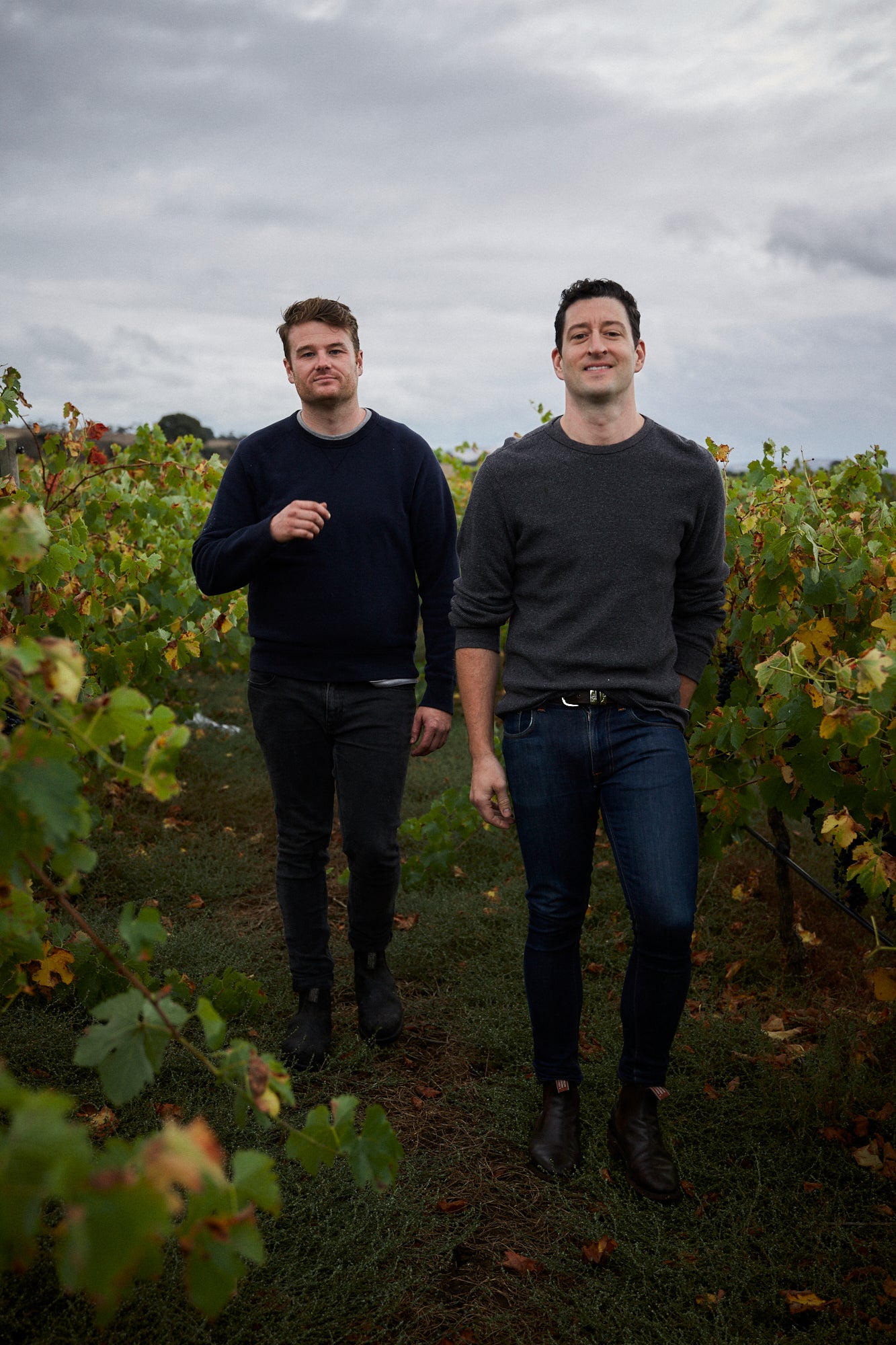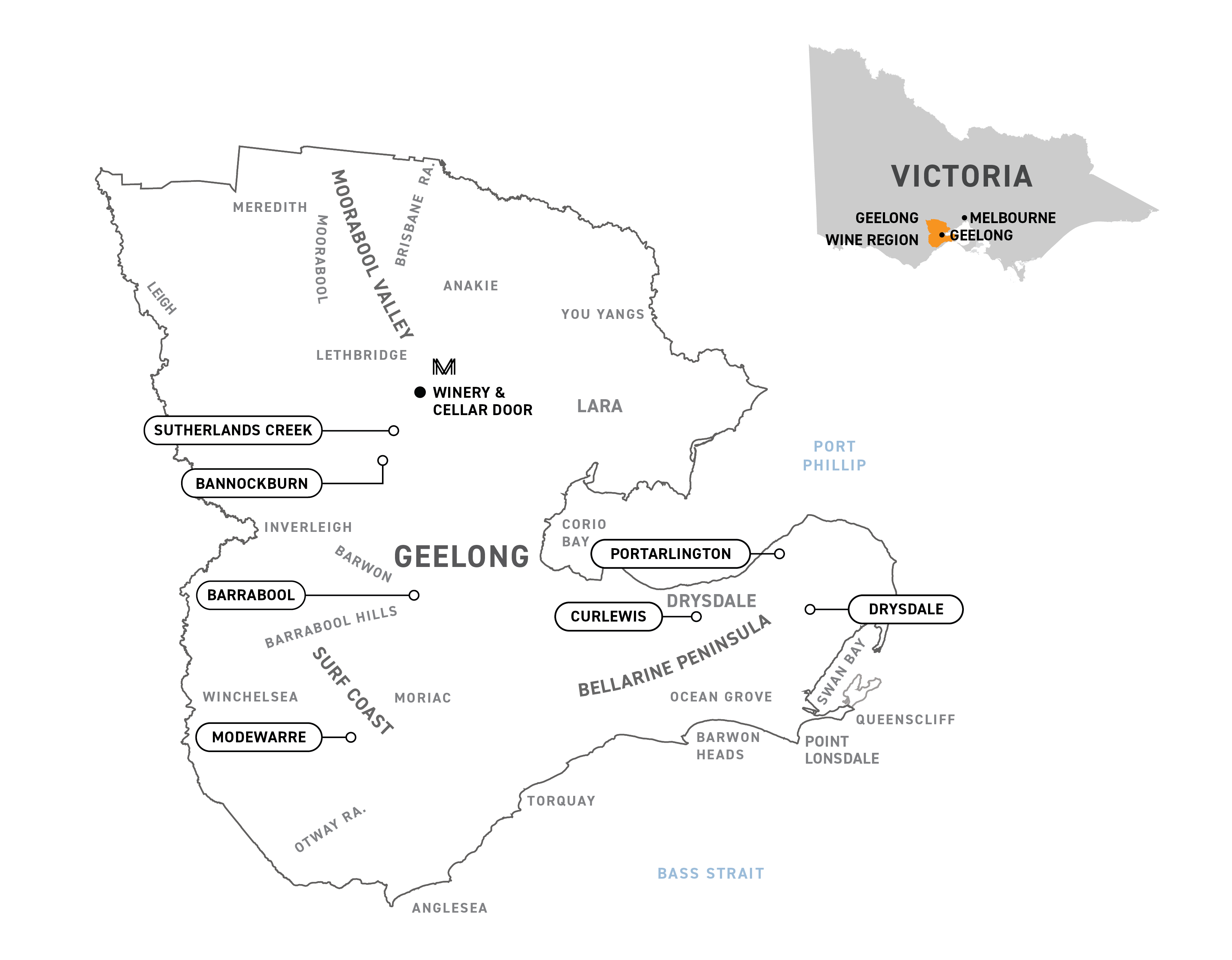Mulline Vintners is a collaboration between 2 Bens focused on producing premium wines from the Geelong Region, Victoria, Australia. Collectively, Ben Mullen + Ben Hine are Mulline Vintners.
Ben Mullen is a qualified winemaker and viticulturist. Ben grew up just east of the Barossa Valley region in South Australia. After graduating from secondary school, Ben enrolled in business and marketing at Uni. Concurrently, Ben began working in the wine industry at cellar doors in the Barossa. He promptly decided that wine was much more fun than marketing and enrolled in a Bachelor of Viticulture and Oenology at Adelaide University.
Since then, Ben has had a whirlwind career which has seen him making wine all over the globe. Of note, Ben has worked at Torbreck (Barossa Valley, South Australia), Yarra Yering (Yarra Valley, Victoria), Oakridge (Yarra Valley, Victoria), Domaine Dujac (Burgundy, France), Craggy Range (Hawke’s Bay, New Zealand) and Clyde Park (Bannockburn, Geelong, Victoria).
With this stellar background, it was a matter of time before Ben Mullen decided to spread his wings and make wine under his own label.
Ben Mullen is the Winemaker at Mulline Vintners.
Born in South Australia as well, Ben Hine began his working career in hospitality. His passion for food, wine and hospitality has endured since.
After finishing study, Ben Hine has worked in law and is now a senior lawyer working in the financial services and risk industry. With that background, he has a head for business and knows a thing or two about drinking wine.
Ben Hine is the Business Manager at Mulline Vintners.
Since the dawn of time, making wine has been a resource intensive practice. That is why good wine is so special and should be savoured and appreciated. While good wine will forever be a luxury item, it does not have to cost the earth to make.
Mulline adopts environmentally friendly practices wherever possible including:
In our own vineyard, using as few non-organic materials as possible to maximise microbial activity and soil health, and investing in best-in-class fuel efficient vehicles.
Partnering with growers who share our viticulture philosophy.
Using screwcap closures which have significantly less spoilage than traditional cork and can be recycled through most kerbside recycling systems.
Using locally produced, lightweight glass bottles which use less raw materials and require substantially less energy throughout their lifecycle to the point of recycling.
Using boxes made from unbleached cardboard with the maximum recycled component commercially available. We always reuse boxes where possible.
Adopting a paperless office: accounts, tax, legal, design, the lot.
Offsetting our emissions from vehicles and deliveries via Greenfleet. We don’t just “talk the talk”. We will happily provide our offset certifications on request.
Moorabool Valley
Between Geelong and Ballarat, Moorabool Valley’s terroir was produced by volcanic activity and mediterranean climate. The warmest and driest of the subregions.
Sutherlands Creek | Pettaval Vineyard. Grey and brown loams and clay loams with granite, planted 1988 to 1998. Low planted, close (1 metre) rows in the French style.
Bannockburn | Bannockburn Vineyards. Limestone clay with a very shallow topsoil horizon, planted 1990 to 1996. A landmark vineyard.
Bellarine Peninsula
South-west of Melbourne surrounded by Port Phillip, Corio Bay and Bass Strait. Maritime climate with views of the You Yangs and Melbourne CBD.
Portarlington | Nurringa Park Vineyard (leased by Mulline). Sandy loam with dark clay over iron stone, planted 1994. Gentle slopes, close planted with uninterrupted coastal breeze.
Drysdale | Leech Vineyard. Grey sandy loam over yellow light clay, planted 1998. A flat and lush vineyard.
Surf Coast
Home of the iconic Great Ocean Road, spectacular coastline, rainforests and beaches. Higher rainfall, long summer days and cooling ocean winds.
Modewarre | Brown Magpie Vineyard. Sandy loam with layers of clay, estuary marl then limestone, planted 2001 to 2002. A protected and lovingly tended patch.





